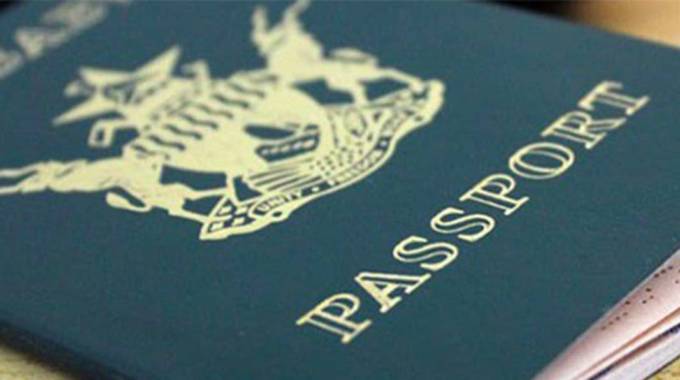
The Sunday Mail

Sunday Mail Reporter
ZIMBABWE has made significant progress in fulfilling the Constitutional requirement to make civic documents like birth certificates, IDs and passports easily accessible to the public by leveraging on the Devolution Programme spearheaded by the Second Republic, President Mnangagwa has said.
Until the ongoing drive by the new political administration to ensure citizens are “equitably served”, services remained largely “centralised in favour of metropolitan provinces, cities and towns at the expense of historically marginalised rural provinces, districts, wards and villages”.
Writing in his weekly column for The Sunday Mail, the President said one of the hallmarks of successfully devolving power was bringing core services closer to citizens and communities, thus facilitating access, enabling participation and achieving inclusivity and fairness.
Last year, Zimbabwe became one of the few African countries on the continent producing e-passports.
Launched on December 14, 2021, the e-passport is in line with the worldwide shift towards biometric data-based identity and travel documents.
“Our eyes are now trained on availability of passports and other travel documents, both to citizens here at home and to those living in the Diaspora. Through an inventive panoply of measures we have now taken, I am confident all the rights and benefits related to citizen documentation as promised by Chapter 3 of our Constitution will be efficiently met and delivered to our citizens.”
President Mnangagwa said he was personally aware of the challenges in accessing passports after he made unscheduled visits to the offices of the Registrar-General.
The subsequent interventions made by Government have resulted in e-passport services being spread to centres such as Beitbridge, Hwange, Bulawayo, Lupane, Gweru, among others.
Service centres are expected to rise to 14 by September, “with the momentum being maintained until all the districts are covered,” he said.
To date, millions of people in rural areas have been able to acquire birth certificates and national identity cards due to an ongoing blitz implemented by the Registrar-General’s Office.
The civic documents are also being issued free of charge.
In areas that were affected by the post-Independence disturbances, where some people still do not have key national documents, Government resolved to simplify requirements for issuance of documents and launch mobile registration and issuance units, including making the registration process free.
“I am now happy that access to birth certificates and national identity cards has vastly improved, with many who had lived in the twilight zone of citizenship feeling they now belong and are empowered,” said President Mnangagwa.
The Diaspora will be catered for as well, as a number of embassies have made progress in setting up systems to issue passports at their stations.
“Already, work has started in Pretoria, Johannesburg and Cape Town, so the large community of Zimbabwean emigres living there will be served. Plans are underway to launch similar outreach services in Lusaka, Zambia; in London, United Kingdom; in Washington and New York in the USA, in Australia and in the Middle East,” he said.
The initiative is being prioritised after the President’s routine interactions with the Diaspora during his foreign assignments.
The net result of the various measures being rolled out by Government, the President said, will help fulfil these critical Constitutional obligations.
“With these cocktail of measures, we have already taken or are about to take, I am confident that we will be in full compliance with expectations of our Constitution on this one matter.”



